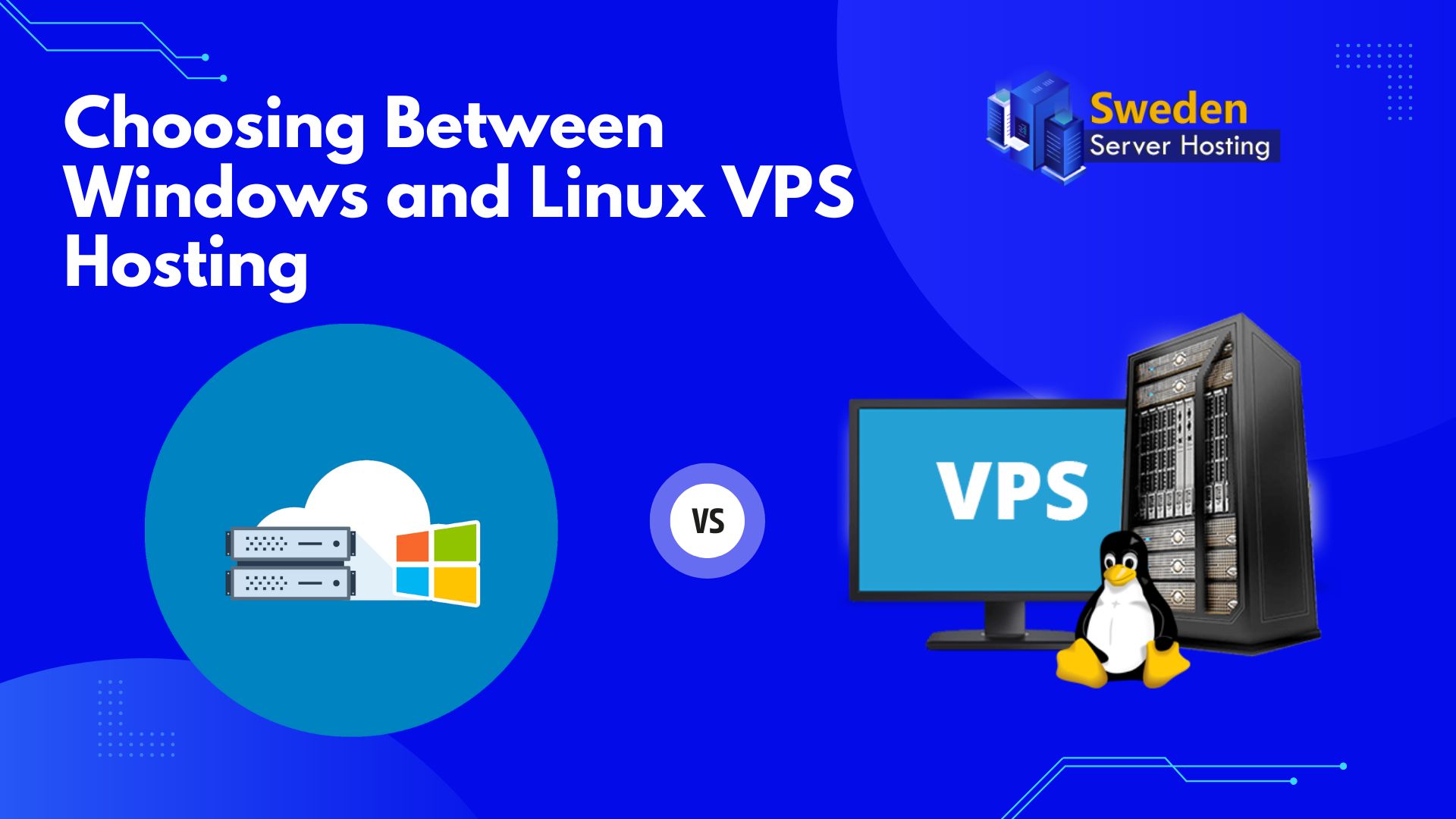Virtual Private Servers (VPSs) are a popular and inexpensive choice in the web hosting market for people and organizations who want greater control and customization in their hosting setup. VPS hosting provides a private and isolated section of a shared physical server, replicating the performance and security of a dedicated server without the high cost. However, the selection between Windows and Linux is generally the deciding factor when it comes to selecting the best VPS hosting platform. Both systems provide specific benefits to certain users, yet they complement one another well overall. This article will help you choose the best VPS hosting for your requirements by comparing and contrasting Windows and Linux.
A Guide to Windows Virtual Private Servers
A virtual private server (VPS) is a form of web hosting in which a virtual server is set up within a real server. Each virtual private server has its own processor, memory, and storage, giving customers more flexibility in customizing their own unique setup.
Windows VPS Hosting’s Benefits
The User-Friendly and Familiar Interface
Windows VPS hosting provides an intuitive and user-friendly experience for those who are already acquainted with the Windows operating system. Users with less technical expertise may more easily control their servers thanks to the GUI.
Complete Compatibility with Other Microsoft Products
Windows virtual private server hosting is compatible with other Microsoft products without any hassle. This makes it a great option for companies that depend significantly on Microsoft-based software.
Powerful Safety Measures
Users of Windows VPS hosting may rest certain that their data is well-protected thanks to Microsoft’s consistent upgrades and patches.
Getting to Know Linux VPS Hosting
The Linux distributions Ubuntu, CentOS, and Debian are used in Linux VPS hosting. Because of its open-source nature, Linux’s source code may be altered and redistributed by anybody.
Benefits of Linux VPS Hosting
Open-Source Ecology
Since Linux’s source code is publicly available, anybody may use it at no cost. This attracts a big group of programmers and fans who work to make it better all the time.
Extensive Selection of Open Source (FOSS) Programs
Linux users get access to a large variety of cost-free apps because of the distribution’s support for open-source software.
Stronger Performance and Stability
Linux’s reputation for dependability and speed makes it ideal for mission-critical software and online services.
Extremely Flexible and Customizable
Linux’s command-line interfaces make it highly configurable, giving users unprecedented control.
Tips for Choosing a Linux Virtual Private Server
Beginner’s Learning Curve
The learning curve for Linux is higher, particularly for newcomers to the command line.
Only Partial Assistance for Some Non-Open-Source Programs
Some users may be concerned that Linux isn’t compatible with their proprietary applications.
Patches for Safety
Even though Linux is a safe operating system, it is crucial to apply patches as soon as they become available.
Comparing Performance
Whether you’re considering a Windows or Linux VPS server, performance should be a top priority.
Management of Resources
Linux often uses fewer resources, therefore more of the server’s resources may be made available to programs.
Server Availability
High availability in virtual private server hosting is possible with either Windows or Linux.
Reaction Times
Because of its small footprint and effective utilization of resources, Linux often has faster reaction times.
Scalability
Linux VPS hosting often outperforms Windows VPS hosting when it comes to scaling to meet rising traffic and demand.
Audience and Potential Applications
Whether a person or company should go with Windows or Linux VPS hosting is highly dependent on their individual requirements.
Who Should Use Windows VPS Hosting?
- Companies of all sizes that rely on Microsoft software
- Target Audience: People used to the Windows interface who value simplicity
- Any.NET Framework or ASP.NET-based website or app
Linux VPS Hosting Useful When:
- Programmers and hobbyists who value adaptability and personalization
- Users that mostly use Linux and other open-source operating systems
- Websites and software that put reliability and speed first
Choosing Between Windows and Linux VPS Hosting
Here are some things to think about if you’re trying to decide between Windows and Linux VPS hosting:
Budgetary Factors
Due to its open-source nature and absence of license costs, Linux VPS hosting may be the most cost-effective option if money is the main issue.
Skill in the Use of Technology
Linux provides a great deal of flexibility for advanced users and developers who are used to working at the command line.
Application and Software Requirements
Think about what programs and apps you want to run on your VPS and make sure they are compatible with it.
Conclusion
In conclusion, your unique requirements and demands must be taken into account while deciding between a Windows and Linux VPS hosting platform. Users who are comfortable with the Windows interface and who rely largely on Microsoft technology will benefit greatly from Windows VPS hosting. Linux VPS hosting, on the other hand, is ideal for customers that need a great deal of leeway in terms of configuration and customization, as well as top-notch performance.
FAQs
1. Can I switch between Windows and Linux VPS hosting?
– Yes, some hosting providers offer the flexibility to switch between the two platforms.
2. Is Windows VPS hosting more expensive than Linux?
– Yes, Windows VPS hosting is generally more expensive due to licensing costs.
3. Which platform is more secure, Windows, or Linux?
– Both platforms are secure if regularly updated and properly maintained.
4. Can I install custom software on both Windows and Linux VPS hosting?
– Yes, both platforms allow you to install custom software and applications.
5. Does the choice of VPS hosting affect website performance?
– Yes, the choice of VPS hosting can impact website performance depending on your specific needs and applications.
View your news on Google News or contact our team 


